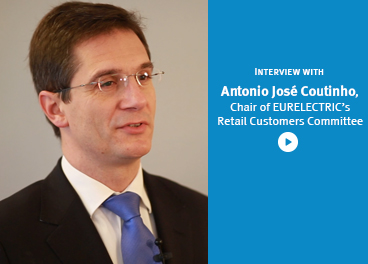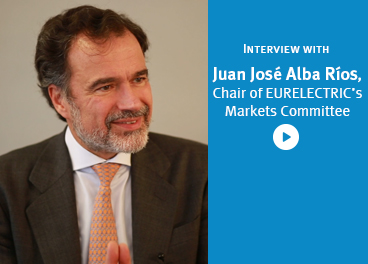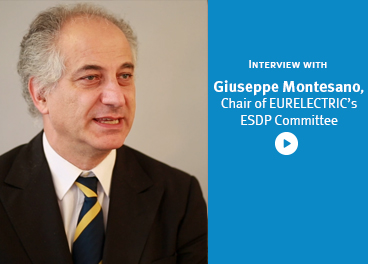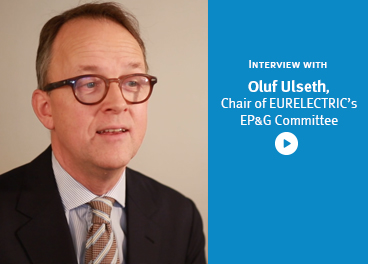January
EURELECTRIC publishes a benchmarking report calling for regulation, which protects customers and allows retailers to cover their costs. The report contributes to the development of CEER’s Guidelines of Good Practice on Removing Barriers to Entry in Energy Retail Markets.

EURELECTRIC organises a workshop, which explores the achievement of a Renewables target for 2030 while ensuring consistency with other elements of the Energy Union.
February
EURELECTRIC welcomes the European Commission’s Energy Security Package proposals on Gas, as well as the Strategy on Heating & Cooling. It reiterates the need for competitive, liquid and well-functioning gas markets and the key role of electricity in decarbonising heating and cooling.

EURELECTRIC, together with EUROGAS and BEUC, sign a joint statement on improved comparability of energy offers, dismissing a standard template. This act proves that consumer associations and suppliers can converge to help customers navigate the market more easily.
March
EURELECTRIC presents its vision about the role of distribution system operators. EURELECTRIC considers a variety of potential responsibilities to be undertaken by DSOs and highlights their indispensable role in enabling a successful energy transition.
European Parliament’s ITRE Committee organises a public hearing on “New Energy Market Design”. EURELECTRIC is invited to present its overarching recommendations on how European electricity markets should evolve so that they meet the needs of citizens, industry and the environment.
EURELECTRIC organises a conference on access to electricity, as part of its pledge to contribute with the United Nations and the European Commission to universal energy access by 2030.
April

EURELECTRIC takes an active part in discussions on market design. It issues recommendations on how to make the market fit for the low-carbon transition and organises a high-level conference “Electricity market design: fit for consumers and decarbonisation”.
The European stakeholder “Platform of Electro-Mobility” dedicated to the sustainable electrification of transport is launched. EURELECTRIC is amongst its 15 founding members. As a first task, the Platform presents the European Commission with key recommendations in view of its transport decarbonisation communication.
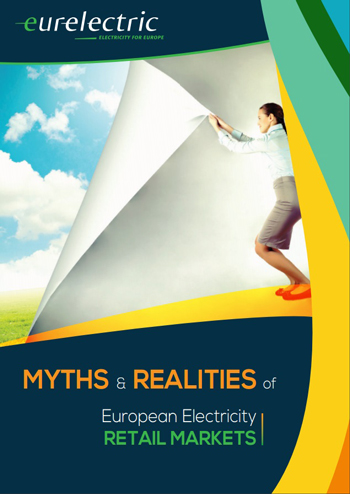
EURELECTRIC publishes a report on myths and realities of EU electricity markets. The publication contributes to the debate on the real issues preventing retail electricity markets from functioning properly to the benefit of consumers.
May
EURELECTRIC welcomes the entry into force of the Network Code on Requirements for Generators (RfG), one of the main drivers for creating harmonised solutions and products necessary for an efficient pan-European (and global) market in generator technology.
June

EURELECTRIC flagship annual event “E-lectricity: The power sector goes digital” takes place in Vilnius, Lithuania. High calibre delegates recognise the role of digitisation and innovation in delivering the European and global decarbonisation objectives at least cost to consumers.
The European Commission organises an ad-hoc session of the Florence Forum devoted to the future of retail electricity markets and DSO issues. On this occasion, the Commission presents its position on the new DSO entity that it intends to set up. EURELECTRIC supports the general principles of the Commission’s proposal, conditional upon further clarification.
EURELECTRIC continues to voice its support for electrification as part of its ongoing Presidential Priorities and organises an event on its benefits, specifically in heating and cooling and how it can contribute to Europe’s climate change targets.
As part of the Smart Grids Task Force Expert Group 3, the European Commission organises a workshop on conditions for successful implementation of incentives for innovation for distribution and transmission system operators. This workshop comes in time for the market design regulation, which according to the European Commission, should include key principles to promote incentives of innovation of smart grids.
Within the European Social Dialogue framework, EURELECTRIC co-signs a landmark agreement with European Federation of Public Service Unions and IndustriAll Europe to provide minimum quality standards for in the European electricity sector.
July

The European Parliament and Council reach a preliminary agreement on a new National Emission Ceilings (NEC) Directive. The Institutions reached agreement on emission limits that would be strict enough to reduce premature deaths from air pollution by around 50% by 2030 and agreed indicative commitments for 2025.
EURELECTRIC welcomes the European Commission’s decision to review the methodology for the calculation of a Primary Energy Factor (PEF). This revision takes place in the context of the legislative proposals on the 2030 Climate and Energy Framework. The European power industry has repeatedly called for an in depth analysis and an improved approach to this important policy instrument.
The European Commission publishes the legislative proposal to revise the Effort Sharing Decision (ESD) and its Strategy on Low Emission Mobility. EURELECTRIC welcomes the documents as they aim to keep the EU on track towards the decarbonisation of the European economy.
August
EURELECTRIC welcomes the entry into force of the Network Code on High Voltage Direct Current Connections (HVDC) and the Demand Connection Code (DCC). The HVDC provisions set out rules relating to the connection of new high-voltage direct current systems to national electricity networks, while DCC sets out rules to the connection of new demand facilities to national electricity networks.
September

EURELECTRIC, together with CEDEC, EDSO for Smart Grids and GEODE, representing electricity distribution system operators, and ENTSO-E, representing the transmission system operators, team up to share their views on how to manage data and information exchanges between system operators. The resulting effort is a joint report and a focused event on TSO-DSO data management.
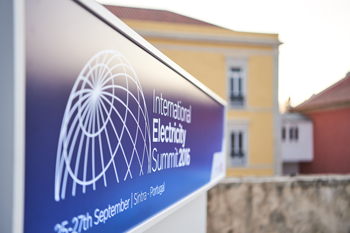
Electric utility leaders from across the globe meet in Sintra, Portugal. They reaffirmed their commitment to a low-carbon economy, acknowledging common challenges and opportunities on the way forward. A joint declaration, covering a range of topical issues, was issued following the event.
October
Network code on Emergency and Restoration (ER) and Forward Capacity Allocation (FCA) are adopted. ER sets out harmonised rules on how to deal with emergency situations and to restore the system as quickly as possible, while the FCA establishes a framework for the calculation and allocation of interconnection capacity, and for crossborder trading, in forward markets.

EURELECTRIC launches a campaign promoting the benefits of electricity in achieving the EU’s decarbonisation objectives for the transport and the heating and cooling sectors. Two toolkits – on Decarbonising Transport and on Heating and Cooling – put forward a number of recommendations and policy actions in view of upcoming legislation.
In the context of regular exchanges and dialogue with the CIS Electric Power Council, EURELECTRIC participates in a high-level energy forum in Baku, Azerbaijan. Delegates present the challenges and prospects for regional electricity cooperation and projects with neighbouring countries aimed at developing interconnections, infrastructure and synergies.
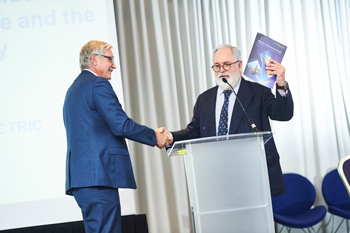
At a high-level EURELECTRIC conference to discuss strategic options that lie ahead in achieving the Energy Union, EURELECTRIC publishes key policy recommendations in a report entitled “Winter Package Solutions”. The document offers insights on Energy Union governance, the review of the Renewables Directive, the new deal for electricity consumers, ensuring an active role for DSOs, as well as aspects relating to wholesale market integration, security of supply and network tariffs.
November

EURELECTRIC joins forces with CEDEC, EDSO for Smart Grids, and GEODE and reaffirms, in a high-level event, the ,importance of the new DSO role in the energy transition and in the new energy market design.
The United Nations Climate Change Conference (COP22) takes place in Marrakech, Morocco. EURELECTRIC participates in the event and submits a statement focussing on the importance of implementing the Paris Agreement.
EURELECTRIC publishes a study, which explores the viability and effectiveness of options to strengthen the EU ETS, and makes specific recommendations for concrete measures to strengthen the ETS in the current reform.
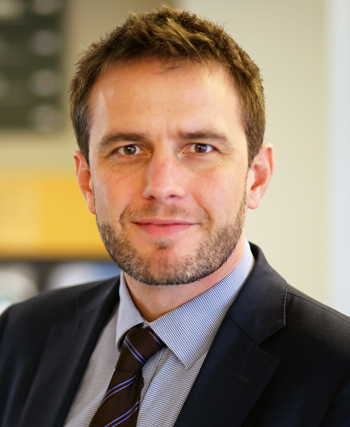
EURELECTRIC Board appoints Kristian Ruby as next Secretary General of EURELECTRIC, effective 1 January 2017. Kristian Ruby succeeds Hans ten Berge, who served a total of 10 years at the helm of the industry association.
December
The European Commission issues its “Clean Energy Package”, the so-called “Winter Package” of legislative proposals. EURELECTRIC welcomes the Package, which aims at better engaging consumers in the energy transition, but stresses the need for a coherent and integrated approach across the entire value chain in order to achieve the 2030 climate and energy targets in a cost-efficient way.
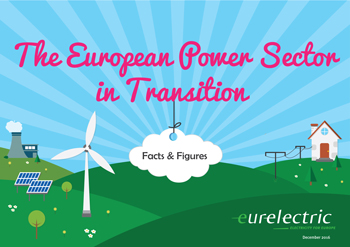
EURELECTRIC releases its annual Power Statistics Publication for 2015 “The European Power Sector in transition”. Data confirms a trend towards an increasingly decarbonised power mix with an increase in renewable generation, alongside a rise of electricity’s share across Europe’s overall energy demand.






















